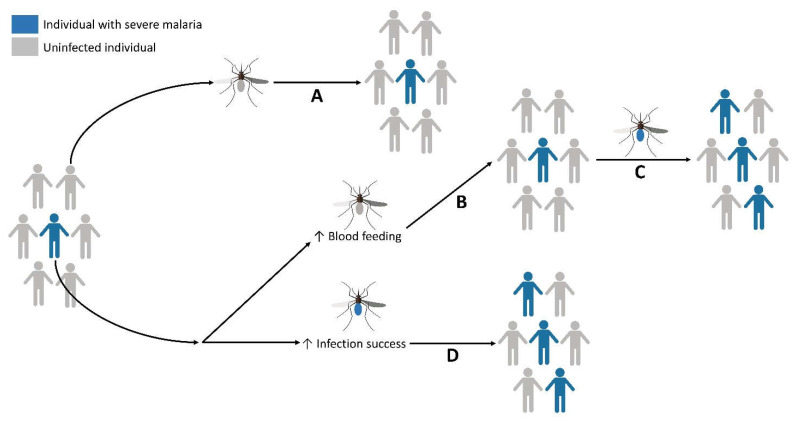Figure 19.
Ingestion of histamine at levels associated with severe malaria can enhance An. stephensi behaviors and parasite infection success in a manner that would be expected to amplify parasite transmission to and from human hosts. (A) If a female mosquito takes a bloodmeal from an uninfected individual (gray host), then subsequently feeds on individuals in the same population, malaria incidence is not increased. (B) If a female mosquito takes a bloodmeal from an individual with severe malaria (blue host), that mosquito may not become infected even if the individual is gametocytemic. However, ingestion of elevated blood histamine (10 nM) by this uninfected mosquito would be associated with increased flight activity, responsiveness to host cues and tendency to take a second bloodmeal from this host population, providing an increased opportunity for this mosquito to become infected (C). Importantly, our observations of increased feeding tendency at a more advanced age promoted by ingested histamine could also partially offset age-related declines in blood-feeding to promote parasite infection and transmission. Once infected, this mosquito can transmit parasites to new hosts, increasing the incidence of malaria in the population. Mosquitoes that become infected after feeding on a gametocytemic host with severe malaria and elevated blood histamine (D) are more likely to transmit parasites to humans because an increased proportion carries salivary gland sporozoites. Figure created with BioRender.com.

